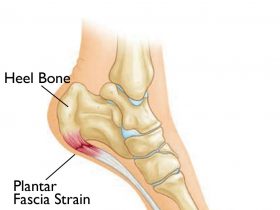Compared to a BSN, which gives you a general understanding of many different aspects of patient care, the MSN is a more focused program. You can choose the specialism of your Master’s depending on the field of nursing which interests you. On the course, you attend lessons, in-person or remotely, which will build on your knowledge of that area and enhance your leadership and administration skills.
Who can study for a Masters in nursing?
To apply for a Masters in Nursing program, you should have previously undertaken a Bachelor of Science (BSN) degree and be a Registered Nurse. Courses are taught over two years, but some can be completed sooner. If you are concerned about the financial implications of giving up work to study, Wilkes University has online MSN courses with classes that start three times each year. These BSN to MSN programs allow you to learn remotely, so you won’t have to visit a campus, and you can study for your qualification at home when it’s convenient.
How challenging is the work?
As it is a post-graduate degree, the MSN involves thinking critically and analyzing complex topics. Students look into subjects in greater depth than they would have done with previous degrees, and the coursework is more rigorous. You will also be working much of the time independently, as there is less contact with tutors than on undergraduate programs.
Which career paths can MSN graduates follow?
As an MSN graduate, you will be rewarded for your hard work with a wider selection of job opportunities and a higher salary. Avast range of specialisms will be open to you, depending on the MSN you have taken. Some of the most popular are:
Advanced Nurse Practitioner
As an advanced nurse practitioner, you could be employed in mental health, gynecology, maternity, and pediatric care. Working alongside a physician, you will be the primary caregiver for your patient, helping with treatments, diagnosis, and recovery.
Clinical Nurse Specialist
As a clinical nurse specialist, the role you take on will depend on the type of care, the conditions, and the population sector in which you chose to specialize. In a healthcare facility, you will deliver advanced care and use your expertise to manage or mentor other staff members.
Nursing Consultant
As a nursing consultant, you will be employed to help a private company or a county clinic improve the safety of their team. You might provide guidance that informs their risk management policy and assist with cost control.
Nurse Educator
A global shortage of nurses has put nurse educators inexceptionally high demand. Whether you teach at a college, clinic, or medical center, your expertise will inspire the next generation of nursing students.
Rewarding posts in the top levels of healthcare provision
There are many more careers open to post-graduate nurses, all of which are equally rewarding and stimulating. An MSN is likely to be your biggest academic challenge so far, but the job satisfaction and increased earnings make it worthwhile.










